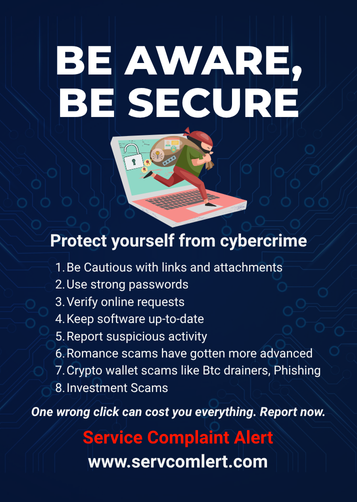The cruelest part of emotional abuse is that it doesn’t always leave visible bruises. It can manifest quietly — in the restrictions on your spending, the constant questioning about where your money goes, or the subtle discouragement from having your own bank account. Financial control is one of the most insidious forms of abuse because it traps a person not only emotionally, but also materially, making it harder to leave and start over.
Understanding the Link Between Emotional Abuse and Financial Control
Emotional abuse often operates through patterns — patterns of belittling, isolating, and undermining. Financial control is one of these patterns, and it’s particularly effective for an abuser because money governs so many aspects of our daily lives. By limiting access to funds or monitoring every purchase, the abuser creates a dependency that can feel inescapable.
This control might begin subtly. Perhaps your partner insists on paying for everything, framing it as generosity, but discourages you from working or earning your own income. Over time, this “protection” becomes restriction. The narrative shifts from “I’ll take care of you” to “You don’t need to make financial decisions — that’s my job.” Eventually, you may find yourself without financial autonomy, which magnifies the emotional grip they already have.
Common Tactics Used in Financial Abuse
While the specifics vary from relationship to relationship, certain tactics are alarmingly common among emotionally abusive partners:
- Restricting Access to Money: Only one person holds the bank cards, knows the PINs, or has access to the joint account.
- Monitoring Every Transaction: Regularly checking receipts, demanding explanations for purchases, or setting spending limits without mutual agreement.
- Sabotaging Employment: Discouraging you from working, making it difficult to keep a job, or creating crises that require you to take time off.
- Accumulating Debt in Your Name: Opening credit cards or loans without your consent, damaging your credit score and limiting future independence.
- Withholding Financial Information: Keeping you in the dark about family finances, investments, or savings.
The goal is the same: erode your ability to make independent decisions and force you into financial reliance on the abuser.
Why Financial Control Works So Effectively
Abusers understand — whether consciously or instinctively — that financial dependence is one of the strongest anchors they can set. Even if you recognize the relationship is unhealthy, leaving without financial resources can feel impossible. Where would you live? How would you pay for legal assistance? Could you afford basic necessities?
This fear keeps many people in harmful situations far longer than they otherwise would stay. It also serves as a form of psychological conditioning — over time, you may come to believe you’re incapable of managing your own money or surviving independently. That belief, planted and watered by the abuser, can be as damaging as the abuse itself.
The Emotional Toll of Financial Abuse
Financial abuse isn’t just about money; it’s about power, autonomy, and dignity. The emotional fallout often includes:
- Loss of Self-Confidence: You may doubt your judgment and skills in handling finances.
- Heightened Anxiety: Constantly worrying about spending or fearing repercussions for minor purchases.
- Isolation: Lack of funds can limit social activities, travel, or even the ability to contact loved ones.
- Shame: Feeling embarrassed to admit that someone controls your finances, which can prevent seeking help.
Because money is intertwined with our sense of security, these effects can linger even after the abusive relationship ends. Survivors often face years of financial rebuilding and emotional recovery.
Signs You May Be Experiencing Financial Control
If you’re unsure whether your situation qualifies as financial abuse, consider whether any of the following apply:
- You need permission to access money or make purchases.
- Your partner criticizes you for spending on necessities.
- You’ve been prevented from working or discouraged from advancing your career.
- Your financial accounts or assets are solely in your partner’s name.
- You feel fearful or anxious when discussing money with your partner.
If several of these resonate, it’s worth seeking guidance from trusted sources — whether friends, support groups, or professional counselors.
Steps to Regain Financial Independence
Breaking free from financial control requires careful planning, especially when safety is a concern. Here are some actionable steps survivors often find helpful:
- Gather Financial Documents: Secure copies of bank statements, identification, credit reports, and any legal agreements.
- Open a Separate Account: If safe to do so, establish a private account in your name only. Choose a bank branch your partner doesn’t frequent.
- Track Your Credit: Regularly monitor your credit report to identify unauthorized accounts or suspicious activity.
- Start a Safety Fund: Even small, consistent savings can become a lifeline over time.
- Seek Professional Advice: Financial counselors and domestic abuse advocates can guide you on protecting assets and rebuilding credit.
- Use Secure Tools: Digital wallets like Voyallet can help you store and manage assets without physical bank statements that could be intercepted.
The Role of Technology in Protecting Assets
In recent years, technology has given survivors more discreet options for protecting and managing their finances. Encrypted banking apps, online-only accounts, and crypto wallets allow for asset storage that is not as easily traced by someone with physical access to your paperwork.
Platforms such as Voyallet can be particularly useful for those managing both traditional and digital assets, as they offer secure storage, staking options, and crypto cards that function like traditional debit cards without needing to rely on a shared bank account.
Finding Support Beyond the Financial Aspect
Recovering from emotional abuse that includes financial control isn’t solely about money — it’s about rebuilding your sense of agency and safety. This process often requires a combination of:
- Therapeutic Support: Counseling or support groups can help untangle the emotional conditioning and rebuild self-confidence.
- Legal Assistance: Lawyers specializing in domestic abuse can advise on asset division, restraining orders, and credit disputes.
- Community Resources: Shelters, nonprofits, and advocacy organizations often provide emergency funds, job placement services, and financial education.
These resources create a multi-layered safety net — emotional, legal, and financial — that supports a survivor’s transition into independence.
A Path Forward
Leaving an abusive situation with financial control at its core is challenging, but it is possible. Survivors who have walked this path often speak of the moment they first held a bank card in their own name again, or when they paid for something without fear of interrogation. Those moments, however small they may seem, are milestones on the road to freedom.
While the financial rebuilding process can take time, each step toward independence chips away at the abuser’s hold. And with planning, secure tools, and supportive networks, you can reclaim both your finances and your future.
If you recognize these patterns in your own relationship, remember: financial control is abuse — and you deserve both safety and autonomy. Your worth is not measured by your access to money, but by the right to manage your life without fear or coercion.


















